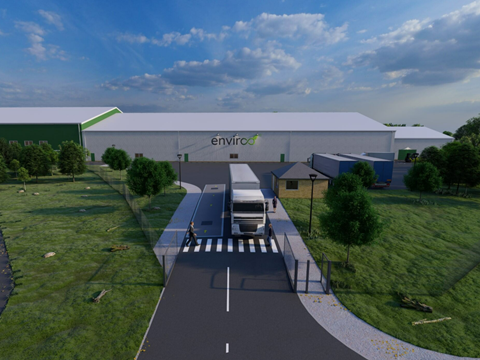
Reichmuth Infrastructure (Reichmuth & Co) has announced it will be financing the construction of a PET recycling plant in the north-west of England, in cooperation with developer and operator Enviroo.
Apparently, Enviroo has identified a process that separates PET plastic from other waste components through a synthesized washing process combined with an extrusion process. This results in a recycled PET granulate that can be used in direct food contact packaging.
The recycled material is reported to ‘seamlessly integrate’ with virgin PET or can be used independently in bottle production. Core elements of the investment concept are both fixed supply and purchase agreements for a large part of the plant’s production.
Enviroo’s founder and CEO, Ahmed Detta, says: “We are excited to partner with Reichmuth Infrastructure, who shares our vision for a truly circular, closed-loop solution to the UK’s plastic waste challenge. Together, we look forward to the plant’s operation, contributing to the country’s ambitious recycling targets, and making a meaningful impact in reducing plastic waste.”
The investment will be deployed starting in the second quarter of 2025, when the facility’s construction will start. Production is scheduled to begin at the end of 2026.
In similar news, ALPLA and Re-Purpose formed a strategic partnership to improve local waste collection and supply ALPLA’s PET recycling facility in South Africa while creating new jobs for disadvantaged people in local areas. ALPLA’s Ballito-based recycling plant was due to receive a €60 million investment, with over 35,000 tonnes of rPET set to be produced there from the beginning of this year.
In a joint Letter of Intent with Zhink Group, Carbios announced plans last year to build a bio-recycling plant for its enzymatic depolymerization technology in China – setting its sights on a minimum annual processing capacity of 50,000 tons of prepared PET waste and an uptake of enzymatically recycled rPET in Asia. Carbios stated that China is a ‘key transformer’ of PET into resins and fibres for use in the packaging and textile industries, representing 78% of PET fibre transformation globally.
If you liked this story, you might also enjoy:
The ultimate guide to the Packaging and Packaging Waste Regulation in 2024
How are the top brands progressing on packaging sustainability?
Sustainable Innovation Report 2024: Current trends and future priorities
Everything you need to know about global plastic sustainability regulation














No comments yet